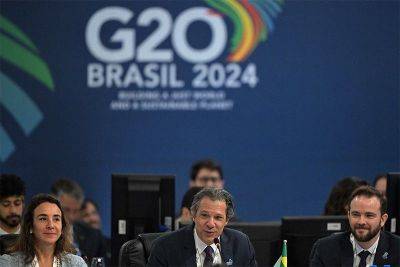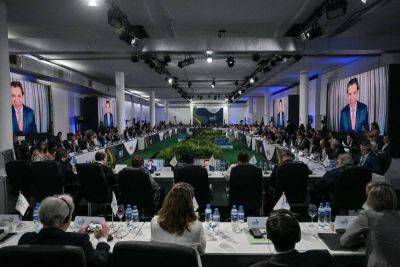Disinfo campaigns target key Ukraine arm... Western support
PARIS, France — From images of fake anti-Ukraine billboards to posts showing false graffiti against Ukraine's leader, pro-Russian disinformation online is targeting Western backing after two years of war.
AFP's fact-checkers have debunked false content that is intended to support or encourage the idea of a growing public fatigue in Europe and the United States.
These campaigns can often take aim at already combustible topics like migration or political affiliations -- topics that could further heat up as June's European Union elections approach.
The disinformation efforts "create the idea that European and American money is being sent unnecessarily," said Valentin Chatelet, research associate for Atlantic Council's Digital Analysis Laboratory (DFRLab).
"There is always a desire to torpedo negotiations... especially with Western players because they are the main financial backers and arms suppliers," Chatelet added.
European Union leaders in early February overcame months of opposition from Hungarian leader Viktor Orban to agree on 50 billion euros ($54 billion) of aid for Ukraine, in a move they hailed as a strong message to Russia.
Across the Atlantic, fresh funding for Ukraine from its biggest backer has gotten snared in domestic US politics in an election year.
The disinformation aims to "erode European support for Ukraine... maligning and scapegoating Ukrainian refugees," says US-based political researcher Elina Treyger.
Specifically, the campaigns highlight the economic and energy fallout on Europeans of the war sanctions against Russia, Treyger added.
Pro-Russian disinformation is most effective when it builds on existing and divisive issues like immigration and purchasing power, experts say.
"The most successful narratives are the ones that tap into something that's already an issue, it's much harder to build from scratch," said Treyger.
"By multiplying the content so much, you'll inevitably hit your target", agreed Jakub Kalensky of the European Centre of Excellence for Combating Hybrid Threats (Hybrid CoE).
When the war in Ukraine began, for example, the Middle East and Africa were targeted with tailor-made narratives based on anti-American,







